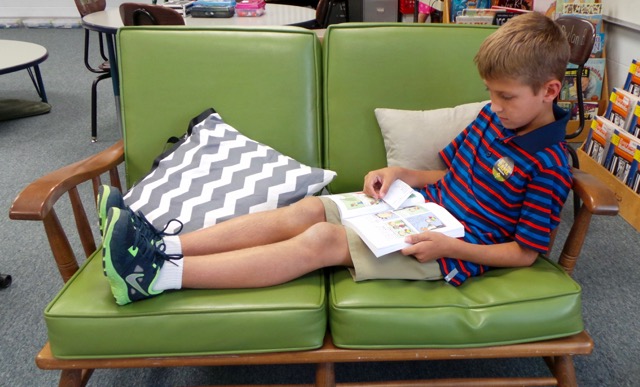The summer break stood in front of me like a colorful welcome mat, beckoning me to enter the time of needed rest and rejuvenation. I was ready. My bedside table was stacked with much-anticipated professional and children's books saved for this uninterrupted reading opportunity. I was enthusiastically looking forward to the extra time I would have to prioritize my pile of books-to-be-read and dig in.
I recently met a teacher who told me about the last day before summer vacation at her school. As staff members checked their mailboxes, they each found two professional books and a note neatly tucked inside. They were told that they needed to read these books over their break. Additionally, the 20 guiding questions on the sheet that accompanied each text were to be answered in preparation for staff discussion the day they returned to school.
This teacher shared her dismay at seeing the books in her box. She appreciates having a leader who encourages professional growth, but like me, she and her colleagues had book titles they were planning to read ready and waiting. The books in her mailbox were not books she had on her to-be-read list and wouldn't address her own questions, the type that cause someone to pause, think deeply, wonder, and read more.

We have relished the opportunity to learn from a variety of researchers and authors, including, but not limited to, Richard Allington, Mary Howard, Jeffrey Wilhelm, and Michael Smith, all of whom have invested time researching and writing about the undeniable, positive results choice reading has on the students in our classrooms. We share this research as we speak to administrators and teachers, such as the teacher mentioned above. We talk passionately about the importance and power of teaching children how to choose books they want to read and that are a good fit for them.
During this summer break or whenever you have the opportunity to delight in reading a book, magazine, newspaper, or blog you have chosen, I challenge you to consider your feelings and think about the children in your care. Every single student deserves to feel the anticipation of their next book, delight in learning something new, fall in love with characters and authors, or abandon a book they don't find fulfilling. Yes, the research is conclusive about the importance of choice for all readers, and sometimes treating our students as we want to be treated is the most powerful thing we can do in our classrooms.
This article might be missing links that were included at the time of publication.

